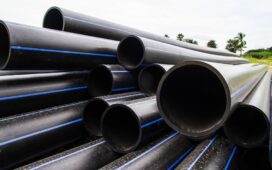Buying a house is an exciting time, but it’s crucial to make informed decisions to avoid hidden problems down the road. Pre-purchase inspections and utility locating are two essential steps that can save you from financial headaches and ensure a smooth transition into your new home.
Pre-Purchase Inspections: A Clear Picture of Your Investment
A pre-purchase inspection, conducted by a qualified inspector, provides a comprehensive evaluation of the property’s condition. Think of it as an X-ray for your potential new home, revealing any underlying issues that may not be readily apparent. Here’s what typical pre purchase inspections cover:
- Structural Integrity: The inspector will assess the foundation, roof, walls, and flooring for signs of damage, wear and tear, or potential safety hazards.
- Major Systems: The inspection will delve into the functionality of electrical wiring, plumbing, heating, ventilation, and air conditioning (HVAC) systems. Identifying potential problems in these areas can save you a significant amount on repairs later.
- Exterior Features: Roofs, gutters, siding, windows, and doors will be inspected for leaks, damage, or code violations.
- Interior Features: Issues like cracks in walls, faulty fixtures, or potential mold growth will be identified.
Benefits of a Pre-Purchase Inspection:
- Informed Decisions: The inspection report empowers you to make a well-informed decision about the purchase. If major issues are found, you can negotiate the price with the seller or even walk away from the deal.
- Peace of Mind: Knowing the true condition of the property reduces stress and allows you to budget for potential repairs.
- Bargaining Power: The inspection report becomes a valuable tool when negotiating repairs or price reductions with the seller.
Choosing a Pre-Purchase Inspector:
- Qualifications: Look for inspectors certified by a reputable organization.
- Experience: Seek an inspector with experience in your area and familiarity with local building codes.
- References: Ask your realtor or past clients for recommendations.
Understanding Utility Locating:
Before any digging commences on your property, it’s crucial to locate any underground utilities like gas lines, electrical cables, or water pipes. Accidental damage to these lines can be dangerous and expensive to repair. Here’s what utility locating entails:
- Contacting Utility Companies: Each utility company serving your area needs to be notified to mark the location of their underground lines on the property. This is usually a free service, but there may be a lead time involved.
- Marking the Lines: Technicians from utility companies will use specialized equipment to locate and mark the path of underground utilities with paint or flags.
Benefits of Utility Locating:
- Safety: Knowing the location of underground utilities prevents accidents while digging for future projects like planting trees, installing a fence, or building a deck.
- Cost Savings: Accidental damage to utilities can incur hefty repair costs. Locating them beforehand avoids this risk.
- Peace of Mind: Starting any project with the knowledge of underground utility placement ensures a smooth and worry-free process.
Conclusion:
Pre-purchase inspections and utility locating are wise investments that can uncover potential problems and save you significant money in the long run. By taking these steps, you can approach your home purchase with confidence, knowing exactly what you’re getting into. Remember, a little planning goes a long way in ensuring a happy and secure future in your new home.







